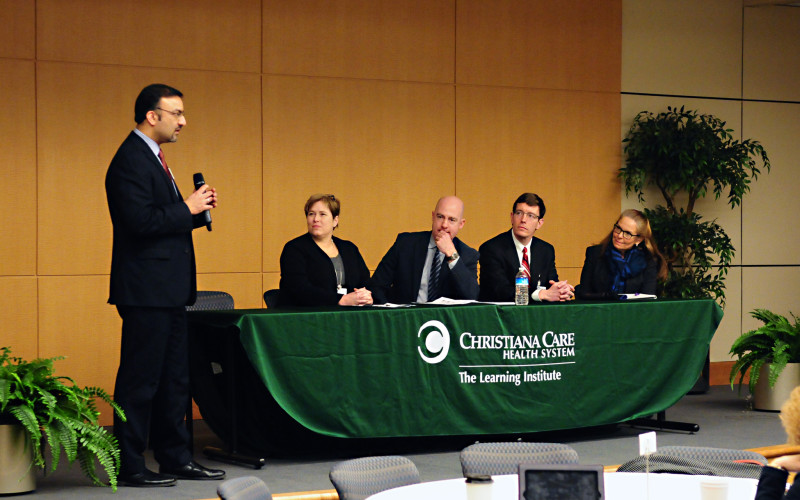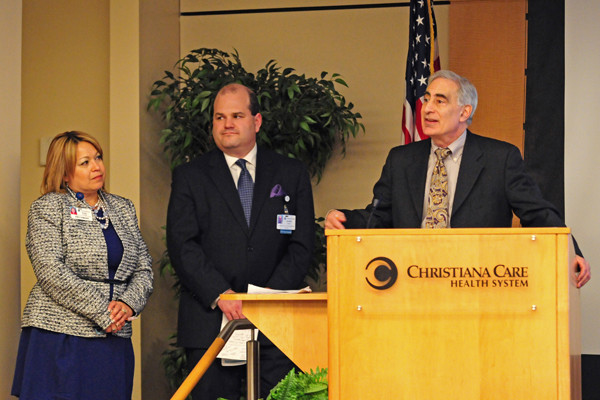Summit focuses on strategy for community engagement, value-based care

Christiana Care’s partnerships and initiatives to meet the needs of its community engagement are broad and deep. A Strategy Summit on Community Engagement for Value-Based Care, hosted March 31 by Christiana Care’s Learning Institute at the John H. Ammon Medical Education Center, aimed to further strengthen and guide Christiana Care’s efforts to enhance community engagement in the design of value-based care.
“Today we are bringing our community together to think creatively about how we can best engage each other in community partnerships,” said Michael Rosenthal, M.D., chair of Family & Community Medicine at Christiana Care and the Delaware ACCEL-CTR program’s leader for community engagement and outreach. “We are here to build a better understanding of the needs of patients and their families, and develop approaches that amplify value-based care to improve health in the community.”
At one level, value-based care is about Medicare reform and a federal change from compensating providers o fee-for-service, or volume of services, to fee-per-outcome, or value of services. But as summit leaders pointed out, value-based care goes far beyond that.
“In trying to put a definition to value-based care, we asked what value means to us as an organization and what it means to the community,” said Shawn Smith, MBA, vice president of Patient Experience. “We realized that definition is in The Christiana Care Way: Its first and last words are ‘we . . . value.’ To create valuable partnerships with the neighbors we serve, we need to be respectful of what value means to them.”
Organizing the summit were Omar A. Khan, M.D., MHS, FAAFP, medical director for Community Health and the Eugene duPont Preventive Medicine & Rehabilitation Institute, and Kathy Cannatelli, MS, director of the Eugene du Pont Preventive Medicine & Rehabilitation Institute and Center for Community Health.
The summit coincided with the development of a five-year plan by the state of Delaware for large-scale health care reform, including a transition to value-based care. Delaware Health and Social Services Secretary Rita Landgraf spoke at the summit about Delaware’s State Health Innovation Plan, supported by the Center for Medicare & Medicaid Innovation.
A chief goal of the plan is for all patients to have primary-care physicians instead of a remote system coordinating their care, and providers who work closely enough together that patients see themselves and all of their doctors as part of one personalized team. For providers, goals include developing a system that pays them for care coordination between a patient’s office visits and rewards quality and efficiency, rather than volume of care, Landgraf said.

The summit highlighted the broad range of community engagement efforts already under way at Christiana Care, with representatives of more than a dozen programs describing their work.
Rosa M. Colon-Kolacko, Ph.D., MBA, senior vice president of the Christiana Care Learning Institute and chief diversity officer, noted access to care is vital to improving health, and our ability to understand diversity to partner respectfully with patients and families from different cultures is critical for Christiana Care’s outreach programs to be effective.
“Our community outreach work is about creating access to help our neighbors navigate the health system to influence healthy behaviors,” she said. “Knowledge of resources available for both health care providers and patients, and having a model that is more holistic and integrated is our biggest opportunity for community engagement.”